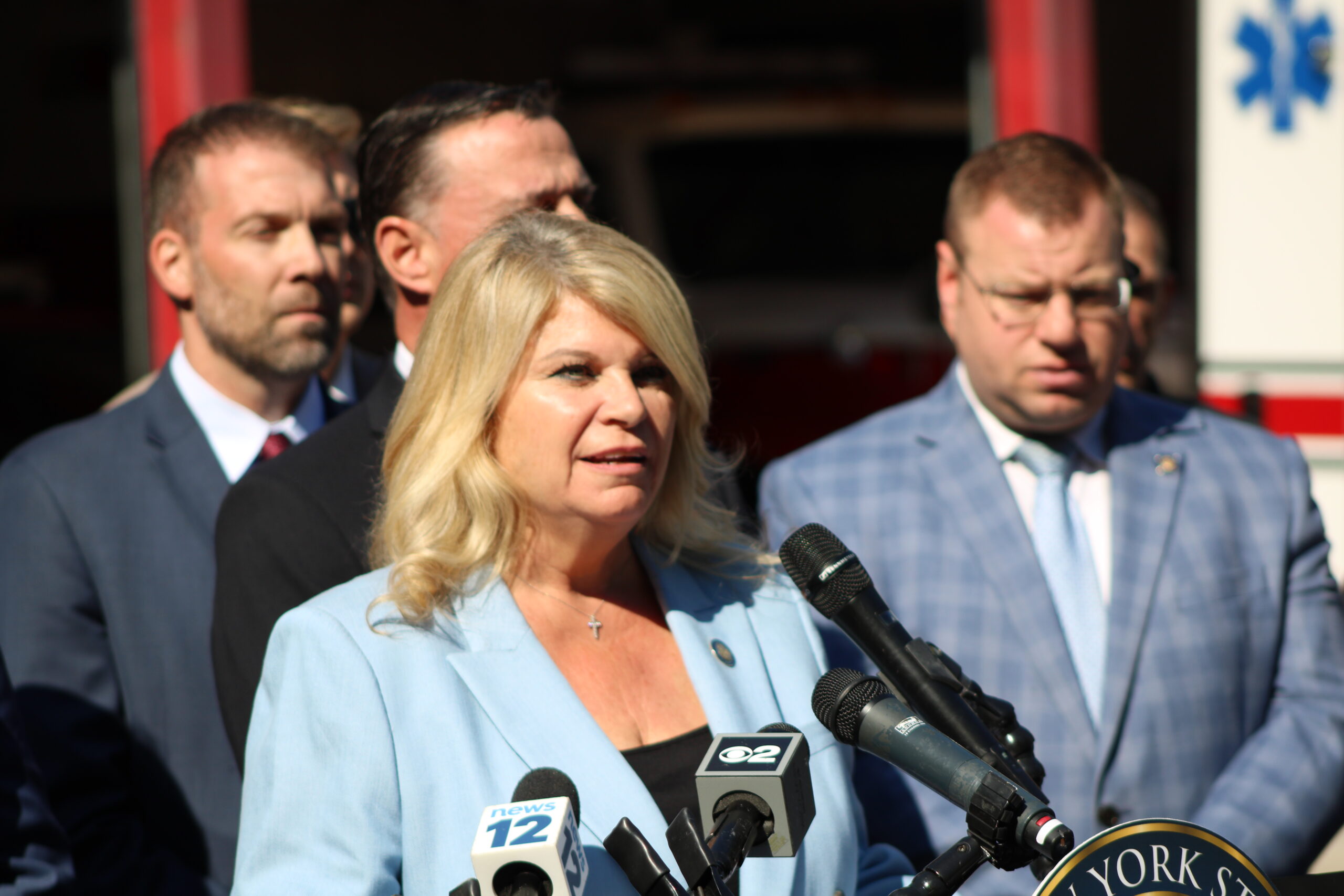
Cover credit – Matt Meduri
Assemblywoman Jodi Giglio (R-Baiting Hollow) announced her intent to reintroduce legislation aimed at safeguarding animal welfare while supporting local pet stores, following her recent press conference. Giglio voiced her strong opposition to a proposed bill (A.4283 of 2021-2022) that seeks to ban the sale of dogs, cats, and rabbits in pet stores across New York State, arguing it would harm the local economy and lead to job losses without effectively addressing unethical pet breeding practices.
Giglio criticized the legislation, which is intended to combat unethical breeding practices, such as those found in “puppy mills.” She claimed the broad measure unfairly penalizes responsible pet store owners who already adhere to stringent sourcing standards.
“A blanket ban on pet sales will force these responsible pet stores out of business and put their employees out of work, creating an unnecessary burden on our community and economy while fueling puppy mills and a black market where roadside sales are already happening,” said Giglio.
During her press conference, Giglio emphasized the positive role that pet stores play in communities, providing jobs and educational resources to promote responsible pet ownership. She highlighted how New York State Agriculture and Markets currently licenses and regulates pet stores, ensuring that many work exclusively with reputable and humane breeders to maintain animal health and welfare.
“At first glance, the idea of preventing the sale of animals bred in inhumane conditions sounds like a step in the right direction, and for many of us who care deeply about animal welfare, it seems like a win. However, when we take a closer look at the unintended consequences of this ban, it becomes clear that it’s a complicated issue that risks doing more harm than good—especially when it comes to small businesses and, ironically, the very problem it aims to solve: puppy mills,” said Giglio. “Our local pet stores are integral to our community, providing jobs, education and support for responsible pet ownership. No one, least of all pet store owners, wants to see animals suffer unsanitary, overcrowded conditions. The proposed legislation (A.4283 of 2021-2022), unfortunately, takes a one-size-fits-all approach that doesn’t reflect the dedication many pet stores have to safe and humane practices. We need legislation like A.6560-A of 2021-2022 to address unlawful breeding practices without penalizing our hardworking small business owners and their employees.”
Giglio’s alternative legislation (A.6560-A of 2021-2022) aims to create a more balanced solution by prioritizing transparency, accountability, and consumer protection. Key provisions of the bill include:
• Requiring veterinarians to disclose the cause of death for certain companion animals.
• Authorizing inspections of pet dealers’ facilities after certain animal deaths.
• Mandating the Department of Agriculture and Markets to develop a public rating system for pet dealers, helping consumers make informed decisions.
• Requiring pet dealers to reimburse consumers if a purchased animal dies within six months of purchase.
Giglio believes these measures will provide a framework for protecting animal welfare while ensuring small pet stores can continue to operate. Critics of the proposed pet sales ban have argued it could inadvertently encourage underground or unregulated markets. Giglio warned that roadside and black-market pet sales would increase if legitimate pet stores were forced to close, further complicating efforts to prevent unethical breeding practices.
Giglio urged legislators to take a closer look at the complexities of the issue and consider solutions that balance animal welfare with economic realities. As the debate continues, Giglio’s reintroduced bill aims to foster a collaborative approach to ethical animal treatment and sustainable pet store practices.